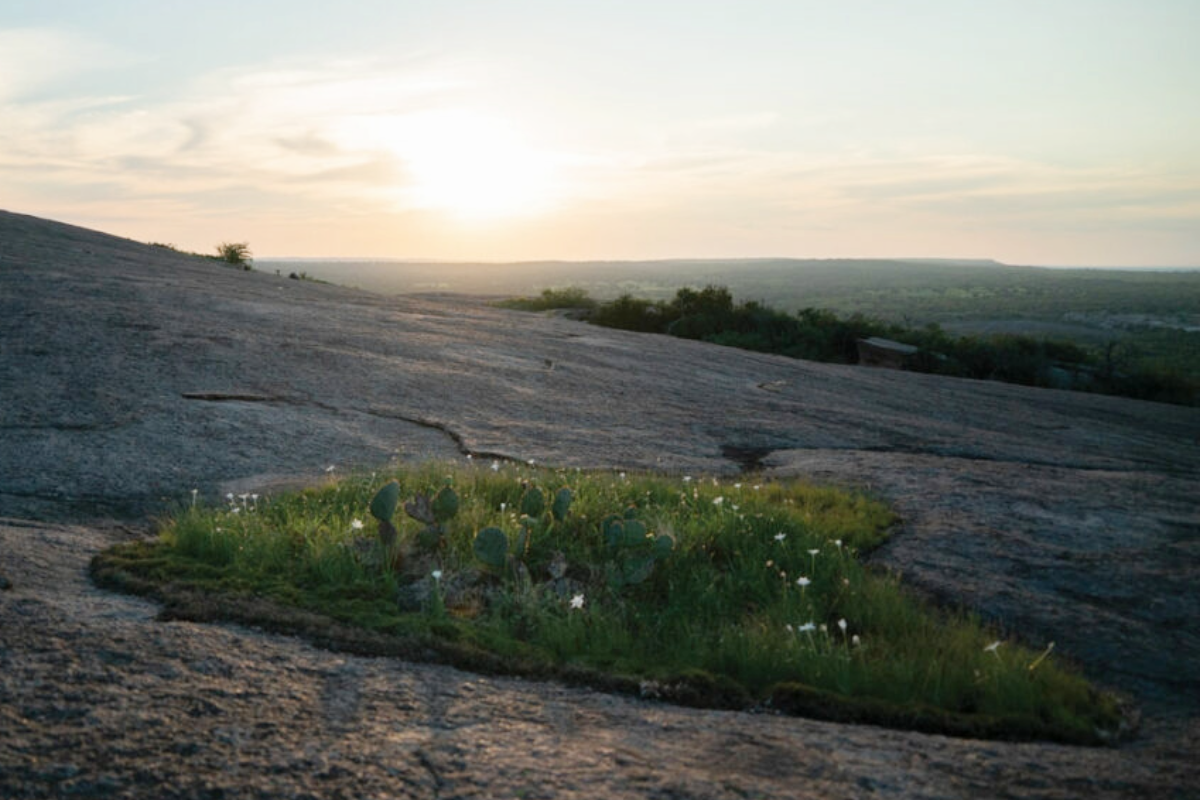
The Spartan Race is a physical and mental test. Photo by Martelle Luedecke/Luedecke Photography
The rugged terrain of the Highland Lakes in the Texas Hill Country makes it a prime place to practice extreme pastimes. Whether you’re ascending the gargantuan granite of Enchanted Rock, tearing down Spider Mountain by bike, or riding a wake on Lake LBJ, an amped-up adventure awaits in the Highland Lakes.
EXTREME FITNESS CHALLENGES
Test yourself physically and mentally at these upcoming events in Burnet County.
SPARTAN RACE
WHEN: In the spring
WHERE: Reveille Peak Ranch, 105 CR 114 near Burnet
Competitors hustle over obstacles and treacherous terrain during Spartan Race weekend at Reveille Peak Ranch, located in rural Burnet County just east of Lake Buchanan.
Runners have several options, from easy breezy 5K races to heavy duty 10Ks and the hellish Hurricane Heat challenges that can last up to 12 hours. Sign up online as a team to guarantee the same start times as your friends or go it alone.
Reveille Peak Ranch hosts an Armadillo Trail Run in conjunction with the more vigorous Spartan Race for those seeking a terrain-based adventure without obstacles.
MOUNTAIN BIKING

Burnet County is arguably the mountain biking mecca of Texas. Riders come from across the state to rip down the granite and limestone hills at premier biking locations.
SPIDER MOUNTAIN BIKE PARK
OPEN: Chairlift runs from 8 a.m.-4 p.m. Friday-Monday; uphill riding from dawn to dusk Tuesday-Thursday
WHERE: 200 Greenwood Hills Trail near Burnet
You know the trails are serious when you use a ski lift to get to the top of Spider Mountain. This bike park has the only functioning chairlift in Texas, giving you access to a network of trails that wind their way down the mountain.
Lift tickets can be purchased in advance for as low as $39 a person.
STATION MOUNTAIN BIKE PARK
OPEN: Check out the online calendar for updated hours.
WHERE: 1101 Crider Road in Marble Falls
Station Mountain is designed with jumps in mind and has a shuttle service to get you to the top so you can get more ride time for your buck. The park also offers night riding with lighted trails, especially nice in the hot summer.
REVEILLE PEAK RANCH
OPEN: Trails and camping are typically available 24 hours a day, but access days vary. Check the calendar to learn more.
WHERE: 105 CR 114 near Burnet
Reveille Peak has over 60 miles of trails that weave and wind across its 1,300 acres. This DIY adventure park has harsh but beautiful terrain, perfect for mountain biking and trail riding.
CANYON OF THE EAGLES
WHERE: 16942 RR 2341 in Burnet County
Canyon of the Eagles, a resort on the remote eastern shore of Lake Buchanan, plans to add mountain bike rentals to its long list of amenities in 2024. Stay up to date on the resort’s website and you might be among the first mountain bikers to tackle its freshly hewn trails.
ROCK CLIMBING

The Highland Lakes and the surrounding hills have a lot of rocks—big rocks. The towering granite and exposed limestone formations that characterize the region are perfect for climbing. Or, check out the indoor facilities for a more controlled experience.
ENCHANTED ROCK
OPEN: Daily from 6:30 a.m.-8 p.m.
WHERE: 16710 RR 965 between Llano and Fredericksburg
Enchanted Rock is the rock to climb in the Texas Hill Country. This granite dome and its smaller cousins are located in a state park, making it an affordable and accessible climbing option. Climbers have to register at park headquarters, where they can get the rundown on rules and routes.
ROCK-ABOUT CLIMBING ADVENTURE
OPEN: Call 512-415-0804 or check out its contact page.
WHERE: 1102 Elm Lane in Marble Falls
Rock-About is a rock-climbing guide service that caters to all skill levels. This is the longest-running rock-climbing outfitter in Central Texas, and it’s led by a suite of experienced instructors that know Hill Country climbing inside and out.
They do guided climbs at Enchanted Rock, Milton Reimers Ranch, the Austin Greenbelt, and if you’re willing to travel a little, they’ll take you up to Mineral Wells State Park and down to El Potrero Chico in Mexico.
Rock-About has an array of options from beginners clinics to advanced excursions that vary in price. Visit its website to learn more.
SHEER FUN
HOURS: By membership or non-member appointment; contact 830-613-7878 or info@sheer-fun.com
WHERE: 2413 Commerce St., No. 17, in Marble Falls
This indoor climbing gym offers thousands of possible routes for all levels of climbers. Schedule an appointment to check out the gym or take a class, or sign up for a membership and have full access.
MILTON REIMERS RANCH PARK
HOURS: Daily from 7 a.m. to twilight
WHERE: 23610 Hamilton Pool Road in Travis County
This Travis County Park has some of the best and most accessible rock climbing in Central Texas. It’s also beautiful and not too far from the heart of the Highland Lakes and Austin. This is a DIY adventure, so make sure you know what you’re doing or going with somebody who does.
OFF-ROADING

HIDDEN FALLS ADVENTURE PARK
OPEN:
- Thursday from 9 a.m.-5 p.m.
- Friday from 9 a.m.-9 p.m.
- Saturday from 8 a.m.-7 p.m.
- Sunday from 8 a.m.-2 p.m.
WHERE: 7030 RR 1431 near Marble Falls; contact 830-798-9820
The off-road adventure park is set in the hilly rough terrain just east of Marble Falls. Rumble down trails in your own full-size vehicles, ATVs, UTVs, and motorcycles.
WATER SPORTS
Lake LBJ is the perfect destination for adventures on the water because of its constant level and wide-open spaces. A few services can take you out on the lake if you don’t have your own boat. Learn to wakeboard, wind surf, or rent the gear you need.
WAKES2U
CONTACT: 512-983-5591 or sales@wakes2u.com
WHERE: Based in Marble Falls
Wakes2U focuses on chartered water sports experiences, boat and personal watercraft rentals, and private lessons in wakeboarding, wake surfing, and water skiing. It also offers summer camps for kids.
WATERWORKS WATER SPORTS ACADEMY
CONTACT: 833-525-5253
WHERE: 14757 RR 1431 in Kingsland
WaterWorks offers chartered water sports and instruction from world-class instructors.
TEXAS WAKE ACADEMY
CONTACT: 512-575-3466 or texaswakeacademy@gmail.com
WHERE: 151 Melodie Lane in Kingsland
Texas Wake Academy’s offers summer camps for kids and lessons for those interested in getting the hang of extreme water sports.












